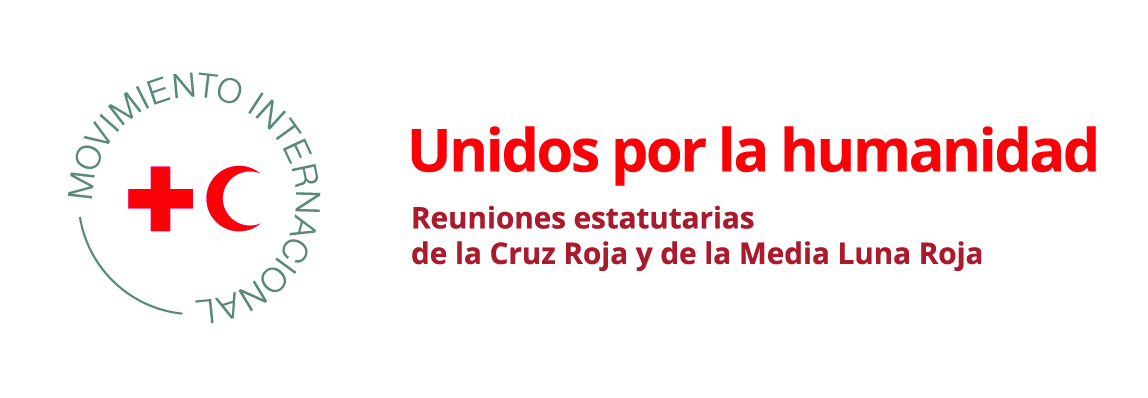¿ Ha incorporado el Estado/la Sociedad Nacional/la institución los empeños contenidos en esta resolución en los planes estratégicos u operativos pertinentes?
SíLos compromisos han sido incorporados en
estrategia
plan operativo
A internacional, nacional nivel
Explicación:
In 2021 the British Red Cross published our report ‘Ready for the Future’, which looks at how we can learn from the pandemic and other recent emergencies in order to improve our response. It explores how we can meet people’s needs in a crisis by adopting a human-centred lens. This research was several years in the making. It was planned before COVID-19 but took on an additional dimension as the pandemic changed what was meant by an emergency, and seriously challenged the existing structures and systems that make up our emergency response. Our teams also responded to the government’s consultation on a National Resilience Strategy.
https://www.redcross.org.uk/about-us/what-we-do/we-speak-up-for-change/ready-for-the-future-improving-emergency-structures#:~:text=Our%20report%2C%20Ready%20for%20the,and%20effective%20in%20an%20emergency.
We continue to engage with decision-makers to influence the detail of the strategy and the Civil Contingencies Act review. We are seeking to ensure that any future legislation underpinning the response to UK emergencies meets people’s needs by placing them at the centre of preparation, response and recovery.
We have shared and developed data and insight on vulnerability and risk driven by climate change in the UK with the UK Government to further develop the UK Resilience Framework and inform the development of the UK National Risk Register.
We also continue our own research on extreme weather events, including research on people’s personal experiences of such events in the UK, considering in detail at what it is like to live through a crisis linked to our changing climate. By exploring the experiences of those who have dealt with these emergencies, we hope to help communities better prepare for future crises; ensure our teams understand what help is needed; and support the government to make relevant adaptations too. https://www.redcross.org.uk/about-us/what-we-do/research-publications#UK%20emergency%20response
We have also recruited a UK climate adaptation manager to help us identify opportunities for adaptation in the UK.
Ha trabajado el Estado/la Sociedad Nacional/la institución con otros asociados para poner en práctica los empeños contenidos en esta resolución?
SíEn asociación con:
gobierno y/o autoridades públicas
CICR/Federación Internacional
Ejemplos de cooperación:
In the UK we work with our partners in the Voluntary and Community Sector Emergencies Partnership (VCSEP). The VCSEP includes over 320 organisations from the voluntary and community sector, academia, and local and national government. Across our 2022 capability building events, 94% of attendees reported enhanced emergency planning and response knowledge. By bringing together local and national insight, the partnership is able to identify the needs of different groups and ensure they are not overlooked, in order to find the right localised and personal support to meet people’s specific needs.
The British Red Cross has developed climate adaptation education and workshop initiatives with several partners in the UK. This includes a partnership with the Met Office relating to information around risk and data, and a partnership with the Royal Meteorological Society on training for volunteers and staff to implement adaptation practices.
In 2020, the British Red Cross provided support to the IFRC in assessing the Trinidad and Tobago Comprehensive Disaster Management Bill. This included use of the Checklist on Disaster Preparedness and Response and the IDRL Guidelines as benchmarking tools.
¿Ha habido dificultades para poner en práctica los empeños contenidos en esta resolución?
SíDificultades en relación con:
conflicto de prioridades
¿Han incidido los empeños contenidos en esta resolución en el trabajo y la dirección del Estado/la Sociedad Nacional/la institución?
SíTipo de repercusión:
desarrollo y uso de herramientas o metodologías innovadoras
Describa detalladamente las repercusiones:
The British Red Cross has a comprehensive community education offer, exploring the topic of disasters and emergencies. This includes primary and secondary teaching ideas about natural disasters and extreme weather events. Specifically, our ‘Weather Together’ toolkit aims to teach 10-16 year olds about preparing for and coping with extreme weather events, including climate change teaching resources and weather learning activities on flood risk, heatwaves, and eco-anxiety.
https://www.redcross.org.uk/get-involved/teaching-resources/weather-together-resources
5. Han incidido los empeños contenidos en esta resolución en las comunidades a las que el Estado/la Sociedad Nacional/la institución presta servicios?
SíDescriba las repercusiones:
Mapping at-risk communities. As an example, to help us focus on the most vulnerable people, whose needs aren’t being met, the British Red Cross has developed a Vulnerability Index. This identifies vulnerable groups in neighbourhoods across the UK who have underlying health conditions, live in a poor environment, experience barriers to housing or services, or face physical or geographical isolation. This index helps us prioritise and target our work to ensure that we are getting support to the people who need us most, and that no one is overlooked. We have made this tool publicly accessible, and it is used to support the work of many other third sector organisations and public sector bodies.
The British Red Cross website also contains comprehensive information about preparing for emergencies in the UK: https://www.redcross.org.uk/get-help/prepare-for-emergencies . This helps to ensure that communities have access to important information.



